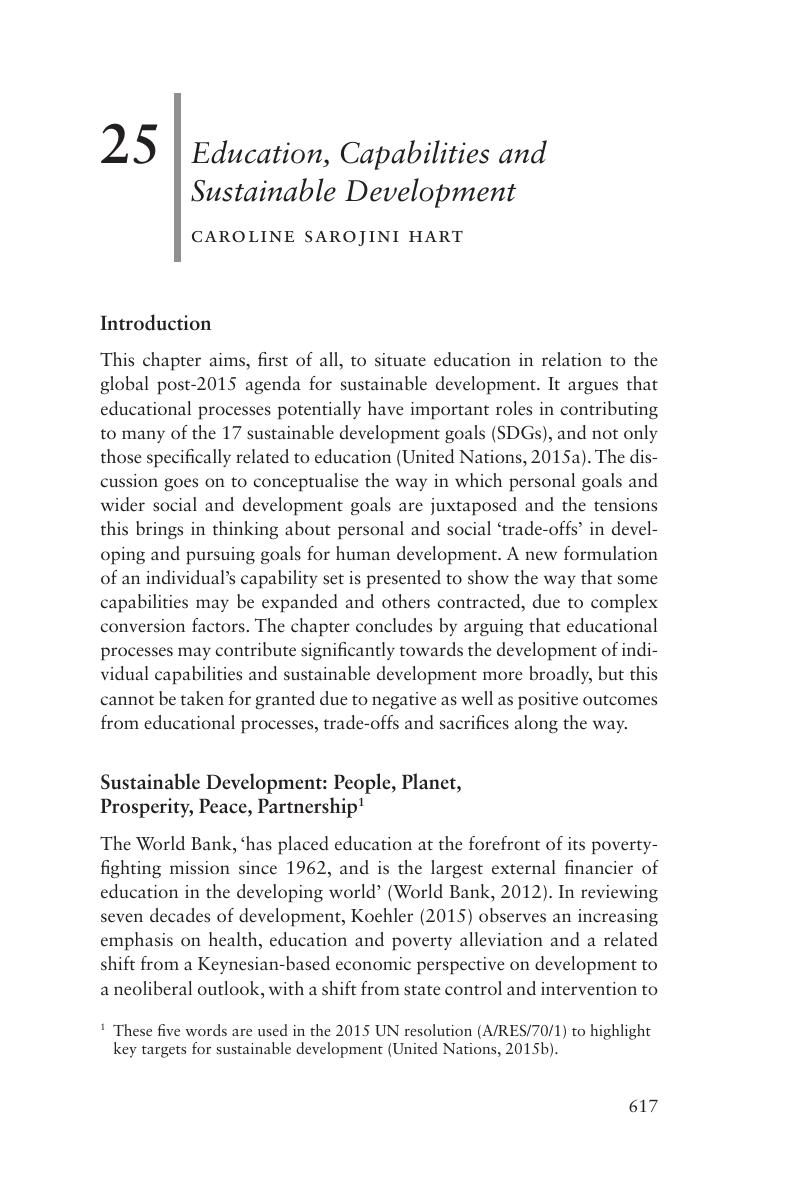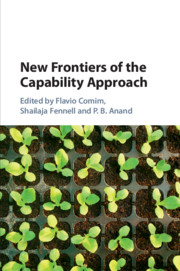Book contents
- New Frontiers of the Capability Approach
- New Frontiers of the Capability Approach
- Copyright page
- Contents
- Figures
- Tables
- Contributors
- Preface and Acknowledgements
- 1 Introduction
- 2 On Sen on the Capability of Capabilities
- Part I The Need for New Foundations
- Part II The Operationalisation Frontier
- Part III The Application Frontier
- Part IV The Housing and Urban Frontier
- Part V The Education Frontier
- 22 Formal Education, Well-Being and Aspirations
- 23 Other People's Adaptations
- 24 Expanding Children's Capabilities at the Writers’ Workshop
- 25 Education, Capabilities and Sustainable Development
- Author Index
- Subject Index
- References
25 - Education, Capabilities and Sustainable Development
from Part V - The Education Frontier
Published online by Cambridge University Press: 08 October 2018
- New Frontiers of the Capability Approach
- New Frontiers of the Capability Approach
- Copyright page
- Contents
- Figures
- Tables
- Contributors
- Preface and Acknowledgements
- 1 Introduction
- 2 On Sen on the Capability of Capabilities
- Part I The Need for New Foundations
- Part II The Operationalisation Frontier
- Part III The Application Frontier
- Part IV The Housing and Urban Frontier
- Part V The Education Frontier
- 22 Formal Education, Well-Being and Aspirations
- 23 Other People's Adaptations
- 24 Expanding Children's Capabilities at the Writers’ Workshop
- 25 Education, Capabilities and Sustainable Development
- Author Index
- Subject Index
- References
Summary

- Type
- Chapter
- Information
- New Frontiers of the Capability Approach , pp. 617 - 642Publisher: Cambridge University PressPrint publication year: 2018
References
- 4
- Cited by



